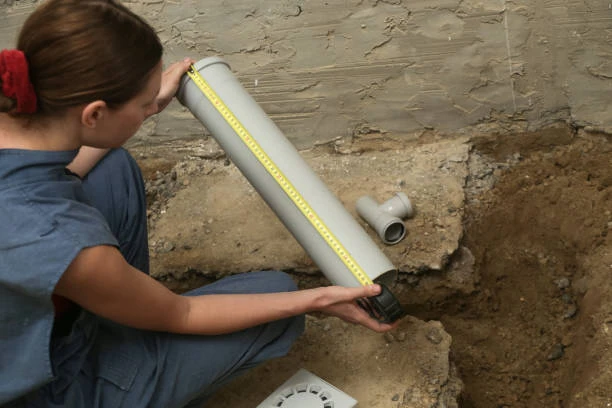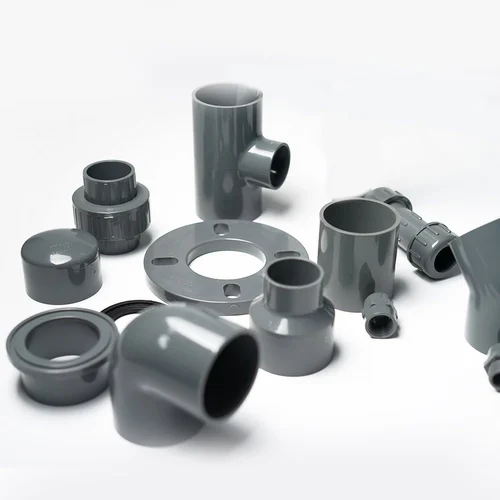Introduction: Maryland Agency Bans Controversial Type of Plastic Pipe
In a significant move, a Maryland state agency has officially banned the use of a particular type of plastic pipe. This decision has raised concerns in the construction and plumbing industries but also addresses growing safety and environmental concerns. In this article, we will explore the reasons behind the ban, the specific issues with the banned type of plastic pipe, and the implications for the construction and plumbing sectors.
The Controversial Type of Plastic Pipe: An Overview
The plastic pipe in question is a type of polybutylene (PB) pipe, which was widely used in residential and commercial plumbing from the 1970s to the 1990s. As concerns over the material’s safety mounted, states like Maryland moved to ban its use in new construction and renovations.
The Rise and Fall of Polybutylene Pipes
Polybutylene pipes gained popularity in the 1970s due to their affordability and ease of installation. These pipes were flexible, resistant to corrosion, and could be quickly installed using compression fittings. For these reasons, PB pipes were seen as an ideal solution for plumbing systems. However, by the 1980s and 1990s, the first signs of problems emerged. Homeowners began reporting leaks, and investigations revealed that PB pipes deteriorated when exposed to chlorine in drinking water and other environmental factors.
Why Did Maryland Ban This Type of Plastic Pipe?
Maryland’s decision to ban polybutylene pipes stems from mounting evidence that the pipes degrade over time, leading to leaks and even catastrophic failures. Water systems that rely on PB pipes are prone to serious issues, including:
- Brittleness and cracking: PB pipes become brittle with age, especially when exposed to chlorine and other chemicals in water.
- Leaking and flooding: The pipes are highly susceptible to leaks and rupture, leading to significant water damage.
- Chemical contamination: Deteriorating PB pipes can leach chemicals into drinking water, raising health concerns for residents.
The Maryland agency’s decision to implement this ban is based on safety concerns and the need to protect homeowners, businesses, and the environment from the potential dangers associated with polybutylene pipes.
Health and Safety Risks of Polybutylene Pipes
One of the main reasons for banning polybutylene pipes is the potential health risks associated with the degradation of the material. As PB pipes break down, they can leach harmful substances into the water supply. These risks have raised concerns about the safety of drinking water for residents in homes and buildings with PB plumbing systems.
Leaching of Harmful Chemicals into Water
Polybutylene pipes, when exposed to chlorine in drinking water, can begin to degrade and leach harmful byproducts. These byproducts include bisphenol A (BPA), a chemical linked to various health issues, including hormone disruption and cancer. While the long-term effects of BPA in drinking water are still being studied, experts agree that reducing exposure is essential, particularly for vulnerable populations such as children and pregnant women.
Increased Risk of Water Damage
The primary physical risk associated with polybutylene pipes is the likelihood of leaks and ruptures. As PB pipes age, they become increasingly brittle and vulnerable to cracking, which can lead to sudden water leaks. These leaks may go unnoticed until significant water damage occurs, affecting walls, floors, and electrical systems. In severe cases, the failure of polybutylene pipes can cause flooding, resulting in costly repairs and disruption.
The Environmental Impact of Polybutylene Pipes
In addition to the health risks posed by PB pipes, there are environmental concerns related to their use and eventual disposal. Like many plastic products, polybutylene pipes do not biodegrade, contributing to long-term plastic waste. When these pipes are disposed of, they can contribute to landfill waste and pollution.
Plastic Waste and Landfill Concerns
As polybutylene pipes age and fail, they often need to be replaced, creating a significant amount of plastic waste. Given that PB pipes are not biodegradable, they persist in landfills for many years, adding to the growing problem of plastic pollution. The environmental impact of these pipes is another reason why many states, including Maryland, are moving to ban their use in new construction.
Potential for Recycling Issues
Polybutylene pipes are challenging to recycle due to the nature of the material. This makes the disposal of polybutylene pipes even more problematic, contributing to the burden on waste management systems and the environment.
What Does the Ban Mean for Builders and Homeowners?
The ban on polybutylene pipes has significant implications for both builders and homeowners. Those who live in homes with existing PB pipes may face costly repairs, while builders and contractors will need to comply with the new regulations in future projects.
Impact on New Construction Projects
For builders and contractors, the ban means that they must use alternative plumbing materials, such as PEX (cross-linked polyethylene), CPVC (chlorinated polyvinyl chloride), or copper pipes. These materials are generally more durable, safer, and longer-lasting than polybutylene pipes. Builders will need to adjust their practices to ensure compliance with Maryland’s new regulations, which may involve switching to newer, more reliable pipe materials.
Dealing with Existing Polybutylene Pipes
Homeowners with existing polybutylene pipes in their homes face the challenge of dealing with potential leaks or failures. If PB pipes are still in place, homeowners may need to replace them to avoid water damage and mitigate health risks.

Alternatives to Polybutylene Pipes
With polybutylene pipes now banned, what are the best alternatives for plumbing systems? Several materials have emerged as safer, more reliable options for modern plumbing.
PEX Pipes: A Safe and Flexible Option
PEX (cross-linked polyethylene) is one of the most popular alternatives to polybutylene pipes. They are commonly used in residential plumbing systems due to their ease of installation, low cost, and long lifespan. PEX pipes are also resistant to chemicals and are a safer option for water distribution.
Copper Pipes: A Time-Tested Solution
Copper pipes have been a standard choice for plumbing systems for many years. They are durable, corrosion-resistant, and do not leach harmful chemicals into water. While copper pipes are more expensive than plastic alternatives, their longevity and reliability make them a solid choice for residential and commercial plumbing.
CPVC Pipes: A Chlorine-Resistant Alternative
CPVC pipes are resistant to chlorine and other chemicals commonly found in water, making them ideal for plumbing systems.
The Future of Plumbing Regulations in Maryland
The decision to ban polybutylene pipes is part of a broader trend of increasing regulation in the construction and plumbing industries. Maryland’s ban may set a precedent for other states to follow suit, further limiting the use of materials that pose health and environmental risks.
Stricter Regulations on Plumbing Materials
As concerns about the safety of plumbing materials continue to grow, other types of plastic pipes may face similar scrutiny. State agencies across the country are beginning to place stricter regulations on the materials used in construction to protect public health and the environment. This trend may lead to the adoption of more sustainable and safe alternatives in the future.
Encouraging the Use of Sustainable Materials
With Maryland’s ban on polybutylene pipes, there is a push for the adoption of more sustainable plumbing materials. Materials such as PEX, copper, and CPVC are more environmentally friendly and pose fewer health risks than older plastics like PB. As awareness of the risks of certain materials grows, it is likely that more states will follow Maryland’s lead in adopting stricter plumbing regulations.
Conclusion: The Implications of Maryland’s Polybutylene Pipe Ban
Maryland’s decision to ban polybutylene pipes is a bold move that addresses both safety and environmental concerns. By banning these pipes, the state is prioritizing the health and safety of its residents, as well as promoting sustainable construction practices. Builders and homeowners will need to adapt to the new regulations, but the move is a positive step toward safer and more environmentally conscious plumbing systems.
Frequently Asked Questions
- Why did Maryland ban polybutylene pipes? Maryland banned polybutylene pipes due to concerns about their brittleness, leakage, and the potential for harmful chemicals to leach into drinking water.
- What are the alternatives to polybutylene pipes? Alternatives include PEX pipes, copper pipes, and CPVC pipes, all of which are more durable and safer for plumbing systems.
- Do homeowners need to replace existing polybutylene pipes? While there is no immediate requirement to replace existing PB pipes, homeowners are encouraged to upgrade their plumbing to prevent potential leaks and water damage.
- What are the environmental impacts of polybutylene pipes? Polybutylene pipes contribute to plastic waste and landfill issues since they are not biodegradable and are difficult to recycle.
- How does the ban affect builders and contractors? Builders and contractors will need to stop using polybutylene pipes in new construction projects and adopt safer, more reliable materials like PEX or copper.


















